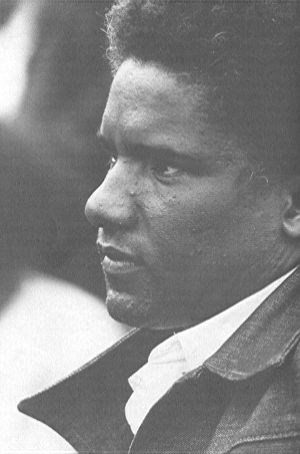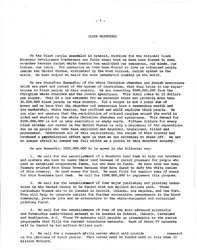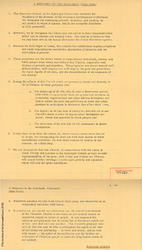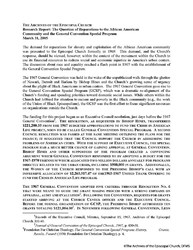Black Manifesto
James Forman, author of the "Black Manifesto" and spokesman for the Black Economic Development Conference, 1969.
External stakeholders exploited internal divisions to place their agenda before the Convention. The Black Economic Development Conference (BEDC), an organization promoting Black independence, published the “Black Manifesto,” which demanded reparations to African Americans. The BEDC grew out of a national conference of the same name held in Detroit, Michigan, on April 26, 1969. James Forman became the spokesman of BEDC and the Black Manifesto became its platform. The BEDC asked for $500 million dollars in reparations from white churches and synagogues and said the monies would be used for nine projects.
Among those projects outlined were a Black university, a communications system, and a southern land bank. By July of 1969 the BEDC movement was solidifying and organizing. The group filed for incorporation in the State of New York and elected officers to serve the organization. Among the officers was Muhammed Kenyatta who was elected administrative vice-chairman. The spokesman for the Manifesto, James Forman, was never an officer of the BEDC. When Bishop Hines met with the author of the “Black Manifesto” and appeared to consider donating funds to the BEDC, many church leaders felt a line had been crossed and were outraged. [Sources]
Muhammed Kenyatta, vice-chairman of the Black Economic Development Conference, explains why he believes that the Black Manifesto cannot fail, and draws a distinction between religious conviction and political action, 1969.





